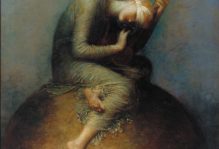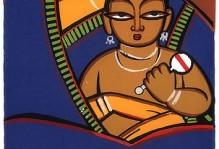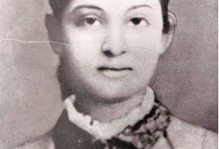The Photograph
Amidst the old-blackened buildings of Kolkata, the rusted windows, and the energy of the city, Alok paced through the traffic with his hand-drawn rickshaw. The city, with its perfect mix of tradition and modernism, sticks to the roots. It engulfs you with its tiny details, of the dingy lanes, the ages-old shops, Bangla music filling the air, and of course, the yellow taxis. Perhaps, things did change, the bazaar is a mix of the English—the bakeries and breakfast points, and the traditional—old school mishtir dokan, the beloved cigarette spots under the tree, some things have stuck around.
Through the small congested streets, passing through the big bungalows and verandahs with a distant radio playing Bangla music—the tune reminds me of ‘coffee house er shae adda ta’ that played on baba’s vinyl at nights as he smoked his pipe. The sweet shop alluring towards the roshogullas and misti doi, Kolkata was everything I saw in maa’s photographs and the stories I had heard. The city speaks for itself, it feels like an old joint family, overwhelming. It has often been told about as the ‘melting pot of various cultures.’ With greeting from here and there, there is a sense of belongingness, an unfound, unidentified nostalgia.
With a water-filled bucket of fishes, I sat on his rickshaw with my legs dangling in the air, he never stopped to catch a breath. I, Selena Chatterjee, came from the US to visit my grandparents. A bit of small talk and Alok told me about his daily chores, transporting fish in the morning, and humans for the rest of the day. He stops to take tea breaks and usually sits to join the adda to know the political and social currents. He tells me about the gossip mongers at the adda and how they catch up about the neighborhood and the nation, hogging on the vegetable chop and some jhalmuri. He tells me about his shift to the city, about his daughter who is around my age, and how he wants to send her to study in Delhi. Alok smiles, tells me about this new pair of lungi and genji; he uses his chappals only when the streets get unbearable.
He isn’t complaining when he says that he has gotten used to the life he leads, he tells me about the customers to tows in the day, some regulars and some new. He jokes about how fishes are better than humans, they don’t complain nor are nitpicky. He stops at the next stop to buy me a samosa, telling me to have all the street food while being here, and we talk a bit more—about the Hoogli river and the jetty, the Howrah bridge (how he loves to stare at it at night while smoking a bidi), the famous sweet shops, the age-old building of Jorasanko Thakurbadi, the Writer’s Building and he tells me about a few hidden British era mansions with their unique borrowed designs.
Seeing him off at the main road, I ask him for a photograph, as I cross the road, I feel the consciousness, he shyly straightens his hair and poses for the camera. Perhaps they rightly said about photographs being personal belongings, not everyone knows the story behind a photograph…





